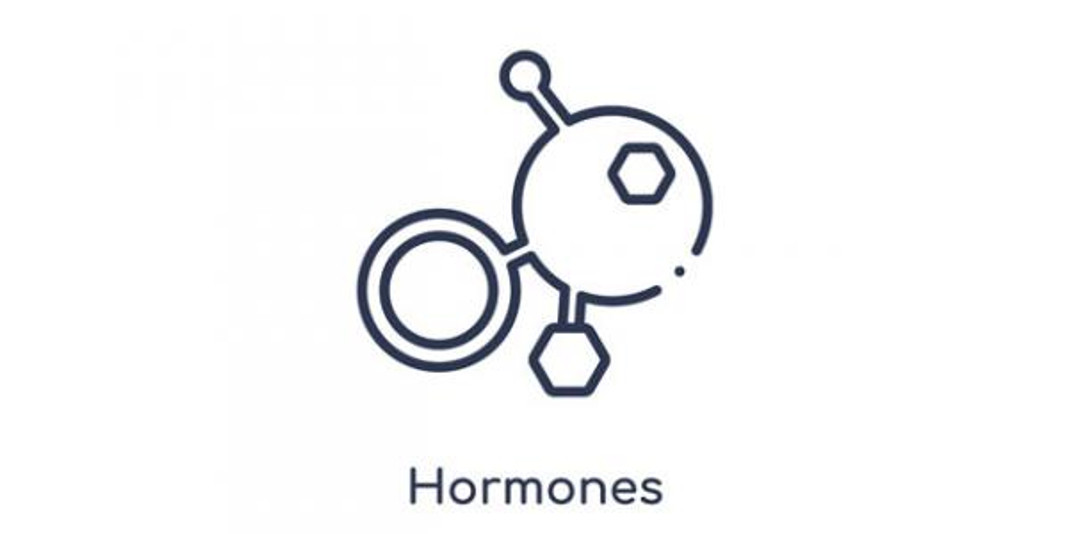
Hormones Affect Your Skin
Most of us realise that hormones affect your skin but how do hormones affect your skin and its appearance? Hormones and skin appearance are linked as levels change within a month and so we could be using the wrong products at certain times during these hormonal changes. This is apparent for example when one gets pregnant, the skin will often glow, basically because oestrogen is a hormone that protects our skin. Your hormones constantly affect your skin. Hormones and skin are linked to your age, but below are some tips to consider for those with a regular period and not on the Pill.
Immediately after your period has ended and for approximately ten days or so, oestrogen levels begin to rise and this does impart a gradual glow to skin. Skin is less liable to inflammation and redness and so during these times you can further heighten the glow with the use of hydration serum with hyaluronic acid such as DoSe by VH Hyaluronic Acid Serum, and/or a peptide serum such as Multi-Peptide Anti-Ageing Serum. These face serums will help to further enhance skin radiance and encourage healthy hydration within the outer layers. This is precisely how hormones can have an influence of ageing skin & its elasticity.
This is also the time to capitalise and incorporate serums that help extend this “glowing” period such as PHA Plus Serum, which works to gently exfoliate the dead cell layers and strengthens skin barrier function.
For the majority, the above products are completely fine, but for some women, an increase in oestrogen may be too high due to genetics or due to poor liver function. When oestrogen levels are too high the liver cannot cope with this and an enzyme called tyrosinase is released, which causes the deposition of abnormal amounts of pigment that may result in hyperpigmentation. This is also how hormones affect your skin and how skin pigmentation occurs for some.
For those affected with an uneven skin tone, consideration should be given to incorporating Triple Vitamin C 23% Serum + Ferulic Acid. This high strength vitamin C serum features three forms of vitamin C—L-Ascorbic Acid, 3-O-Ethyl Ascorbic Acid, and Ascorbyl Glucoside, that work synergistically to visibly brighten and lighten hyperpigmented areas as well as helping to encourage skin hydration and collagen synthesis. If the hyperpigmentation is extensive then perhaps consider incorporating Alpha Arbutin 2% and Kojic Acid 1% Serum to further support the brightening and lightening effects of vitamin C serum.
By the third week, hormones affect skin differently. Oestrogen levels begin to drop and testosterone and progesterone become dominant leading to greater inflammation, which in turn can lead to greater oil production. This may result in the first signs of spots and acne and this is how hormones are linked to skin problems. It is during this time that you may wish to change your routine and include Niacinamide Serum to help calm inflammation and regulate oil secretion, Salicylic Acid to deep clean pores of excess sebum and debris and Hyaluronic Acid Serum, a face serum for hydration since dehydration is a known causal factor for inflammation, which would ultimately lead to either greater oil production.
You can now begin to understand how hormones affect your skin. Whether you suffer from acne, hyperpigmentation or simply wish to have a radiant and glowing complexion for the entire month, there is one supplement that I would highly recommend called Clear Skin Complex by Viridian Nutrition. This supplement contains Burdock Root which works to cleanse and purify the bloodstream of toxins that can cause dullness. Burdock, by its virtue of cleansing the bloodstream, will help the liver to detoxify efficiently so it may also be invaluable for hyperpigmented skin types. It is safe to take Clear Skin Complex on an ongoing basis.
DISCLAIMER: The views, opinions and information expressed in this article and on Victoriahealth.com Ltd are those of the author(s) in an editorial context. Victoriahealth.com Ltd cannot be held responsible for any errors or for any consequences arising from the use of the information contained in this editorial or anywhere else on the site. Every effort is made by the editorial and content team to see that no inaccurate or misleading information, opinion or statement appear, nor replace or constitute endorsement from medical bodies or trials unless specified. Victoriahealth.com Ltd accept no liability for the consequences of any inaccurate or misleading data, information, opinion or statement. Information on Victoriahealth.com Ltd and in the editorials is provided for informational purposes only and is not intended as a substitute for the advice provided by your physician or other healthcare professional. You should not use the information on this website or in the editorials for diagnosing or treating a health concern or disease, or for the replacement of prescription medication or other treatment.








